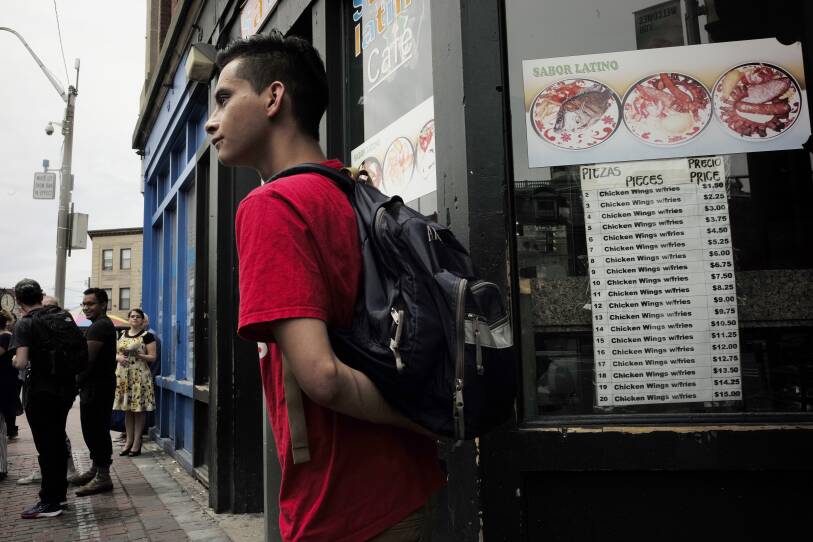The Latino population in Massachusetts accounted for $30 billion of the state’s economic growth over the last decade, according to a new report.
Those contributions — amounting to more than a quarter of the state’s total economic growth in that timespan — are despite continuing gaps between the Latino population and other Massachusetts residents. Disparities in the workforce, educational attainment and homeownership amount to billions of unearned dollars for the state’s Latino population, according to the report from We Are ALX, The Massachusetts Taxpayers Foundation and the Mauricio Gastón Institute for Latino Community Development & Public Policy.
Eneida Román, president and CEO of We Are ALX (formerly known as Amplify Latinx), said the report was prepared to help recognize the contributions of the Latino population.
The Latino workforce grew by 49% in the last decade. That influx of workers played a huge factor in Latinos’ contributions to the state’s economic growth.
“The reality is that Massachusetts is sitting on a massive untapped economic engine,” Román said. “We’re here to continue supporting the growth of the Latino leaders and Latino businesses, so that we [can] continue contributing more and more each day to the economy of Massachusetts.”
The sectors with the most Latino workers are education, health care and social services. The report authors noted some progress has been made in the proportion of Latino workers in high-paying jobs, but there’s still an $11.1 billion wage gap between the Latino population and Massachusetts’ overall population.
Román said that often the Latino community is excluded from economic strategy conversations. Because of that, she said, the “¡Vamos Massachusetts!” report was created as a baseline for the work needed to address issues such as the wage gap. The report also cited the demand for more workers in sectors like clean energy technology and manufacturing.
“The goal is to make sure that policymakers, employers, advocates alike have all these facts, all this data … so that we can all have a roadmap so that we can recognize Latino residents as not just contributors to the economy,” she said, “but also a central piece to the commonwealth’s economic future.”

Nationwide, Latino wealth has increased faster than other non-white groups in the past several years but remains far below white households.
The report authors note this gap is extreme in Massachusetts. Here, the median net worth of a Latino household is $9,373 — just 3% of the median net worth for a white household in the state, which is $360,455.
Betty Francisco, CEO of community lender Boston Impact Initiative and co-founder of We Are ALX, said homeownership is the primary way to build wealth. About a third of Latinos in Massachusetts own a home, which is half the rate of Massachusetts homeownership overall.
“That growth in population alone is not going to be enough,” Francisco said. “Part of what’s going to be really important is to see Latino communities increase levels of both homeownership … and entrepreneurship.”
Francisco said advancement starts with education.
Aisha Francis, president and CEO of Franklin Cummings Tech, said the institution’s Latino enrollment has grown organically. The school is one of 12 minority-serving institutions in Massachusetts, and one of nine that qualify as Hispanic-serving institutions. In the 2022-23 academic year, Latino students made up 28% of Franklin Cummings Tech’s enrollment.
“Students have been attracted by our programs and by our success,” Francis said.
With the growing number of college students, Francis said more young people are finding joy in learning and feeling fulfilled in their post-secondary outcomes.
“To be able to do that in the context of this commonwealth, where education is an important part of the business sector … is important,” she said.
We Are ALX will host the ALX Policy Forum on Wednesday, hosting local and state leaders to discuss the report’s findings and policy implementation to close the remaining gaps.





